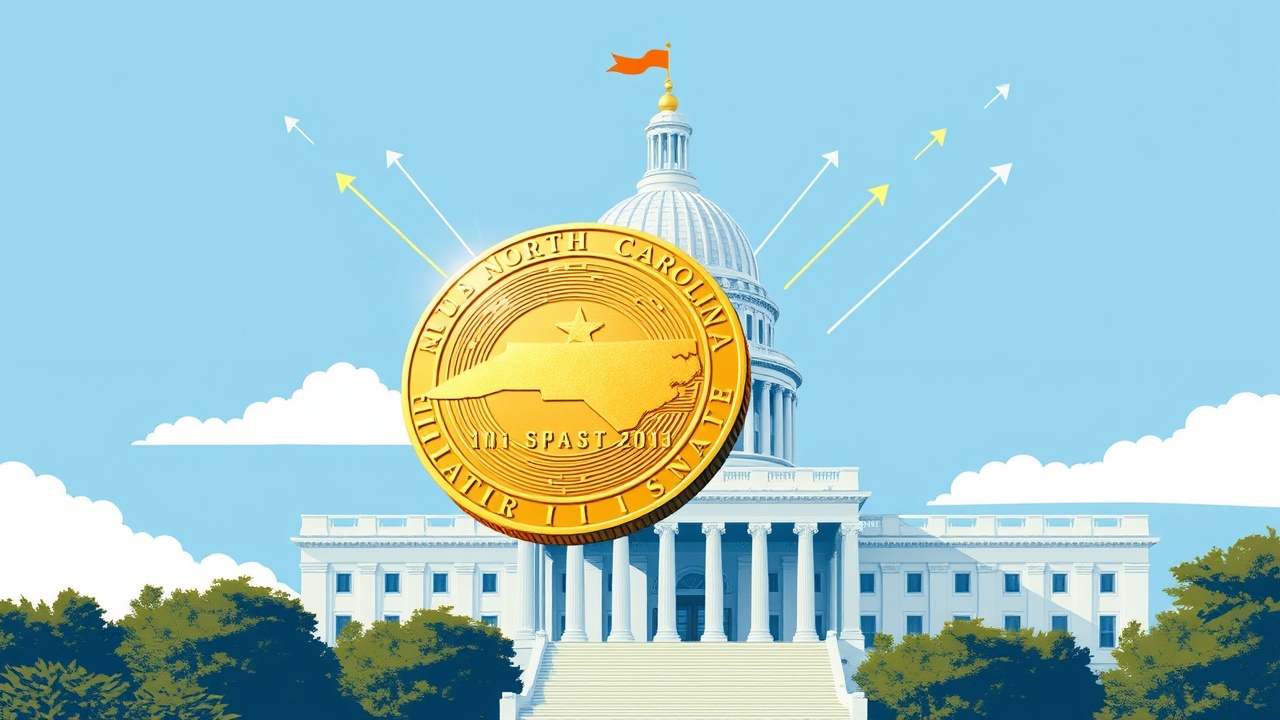North Carolina’s Digital Assets Investment Act
The North Carolina House of Representatives has successfully approved a significant piece of legislation aimed at authorizing the state’s investment in digital currencies, a trend gaining traction among various U.S. states. Known as the “Digital Assets Investment Act” or HB92, this bill now advances to the Senate where it will undergo further scrutiny.
Overview of HB92
Introduced on February 10 by Republican House Speaker Destin Hall, the measure gained traction and secured its third reading on Wednesday. If enacted, it would empower the State Treasurer to make investments in certain approved digital assets while exploring their potential integration into retirement plans for state employees. Specifically, the bill tasks the Treasurer’s office with:
- Identifying appropriate investment options
- Creating guidelines for contribution limits
- Crafting educational resources that detail the potential risks associated with investing in digital assets
Feasibility Study for Digital Currencies
Additionally, the legislation includes a provision for conducting a feasibility study aimed at establishing a state-run reserve for digital currencies that have been seized or forfeited, which would be monitored in partnership with the State Bureau of Investigation and local law enforcement.
Broader Context and Comparisons
As part of a broader national conversation surrounding cryptocurrency, supported by advocates like former President Donald Trump, many states are eager to create their footholds within the digital economy. North Carolina’s legislative movement aligns with similar initiatives seen in states such as Arizona, New Hampshire, and Texas, which are also contemplating the implementation of Bitcoin reserve legislation.
Competing Legislation in North Carolina
Moreover, there is another active proposal in North Carolina, SB 327, known as the “Bitcoin Reserve and Investment Act”, which was introduced on March 19. This bill seeks to permit the allocation of up to 10% of public funds into Bitcoin, highlighting its potential for fostering financial innovation and boosting the state’s economy. The Senate has already passed its first reading of this proposal, which is currently pending further evaluation by a committee.
Comparison with Other States
The climate for digital asset legislation varies across the country, with some states, including Indiana and Florida, deliberating over similar proposals aimed at integrating digital assets into public pension systems. However, efforts in states like Oklahoma, Montana, Pennsylvania, North Dakota, South Dakota, and Wyoming have not garnered sufficient support.
Changes to HB92
It’s worth noting that North Carolina’s HB92 underwent adjustments during the legislative process, with the maximum limit on digital asset investments decreasing from an initial proposed cap of 10% of the fund’s total balance to 5% in the latest version.




